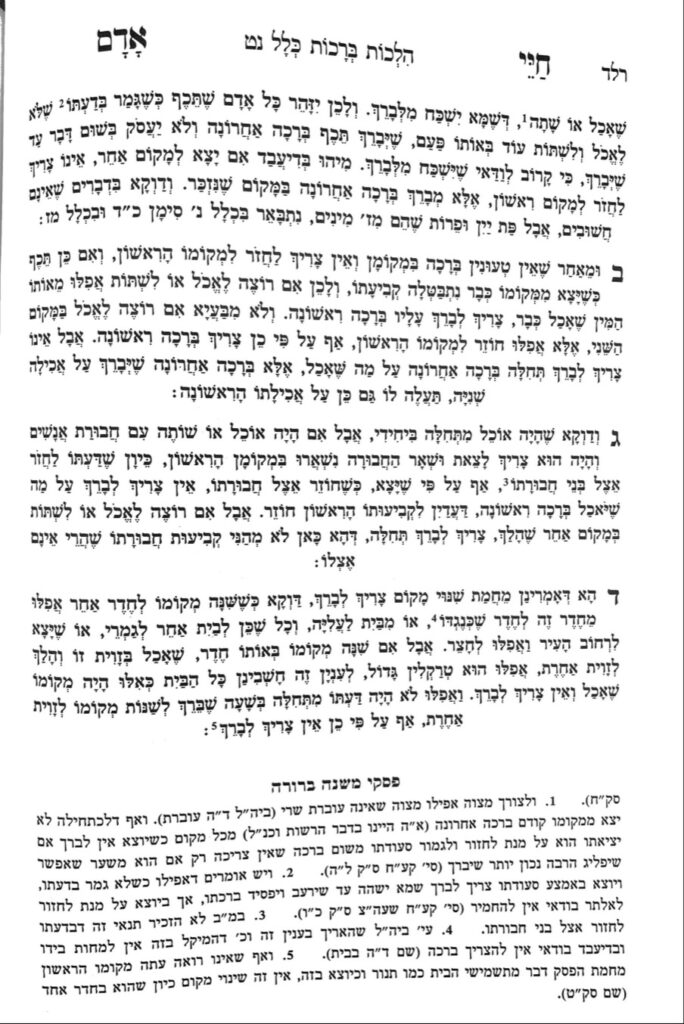We are beginning siman 3. We have learned about different situations in which one can extend their eating session and avoid needing to make a new bracha rishona. The Chayei Adam writes of another such situation.
The Chayei Adam write that differentiations we made between borei nefashos versus al hamichya and birkas hamazon apply when one is eating alone. However, if one is eating in a group and they leave, if, when they leave, they had intent to rejoin the group, they do not need a new bracha rishona.
The Chayei Adam appears to hold that this halacha only applies when one had intent to rejoin the group, and if did not have intent to rejoin, they would lose their bracha rishona. The Mishnah Berurah does not add this stipulation, and even if one does not have intent, they do not need to make a new bracha rishona.
The poskim discuss the definition of a group. Friends and family are certainly considered a group. The poskim assume that eating with a koton can also considered a group, as long as the koton understands the chiyuv to make brachos, which the poskim assume is from age six.
The poskim discuss a situation in which the only member of the group eating is the person who walks out, while the others members of the group were only there to schmooze and do not eat anything. Rav Scheinberg zt”l paskened that such a group is sufficient to be considered a group, and the person who leaves would not have to make a new bracha rishona when they return. Although the lashon (text) of the Chayei Adam does not seem to indicate this way, it is not conclusive, so it is at least a safeik bracha and one would not make a new bracha.
If the group finishes and leaves while the person had stepped out, that person wil need to recite a new bracha rishona upon their return, because their group has left. If the group has not left, but they all recited a bracha achrona, they have indicated that the eating session is over. Therefore, when the other person returns, they are not returning to the original state in which they left, and would need to recite a new bracha rishona.
The Chayei Adam points out that this entire halacha only applies to the place in which the group is situated. If one walks away and would like to eat something while they are in that other place, they would need a new bracha rishona in that place, because the presence of his group in the original place does not help for the new place.
Summary
- If one leaves their original place and there is a group of others, even a koton, still there and still eating upon his return, he does not need to recite a new bracha rishona.
- This halacha applies even if the person did not have intent to return to the group.
- If the other members of the group were never eating, and had only gathered to schmooze, this halacha will apply as well.
- This only is valid if he returned to the place where the group is at. It will not help him to eat without a bracha while he is away from the group.



